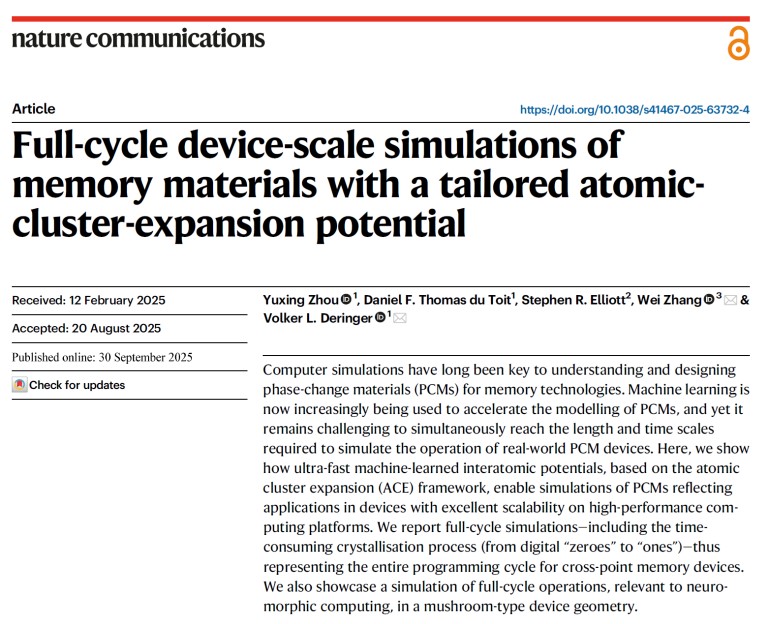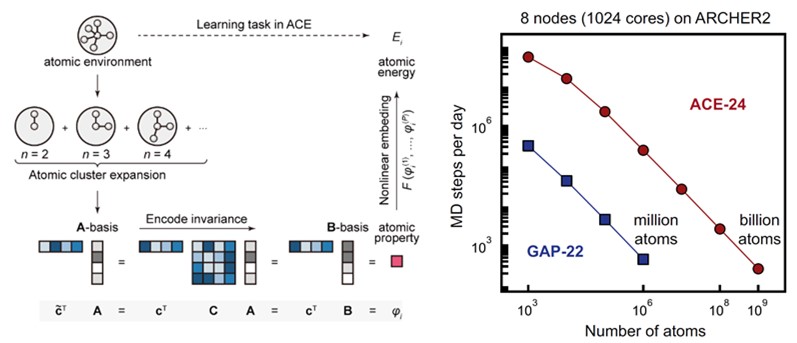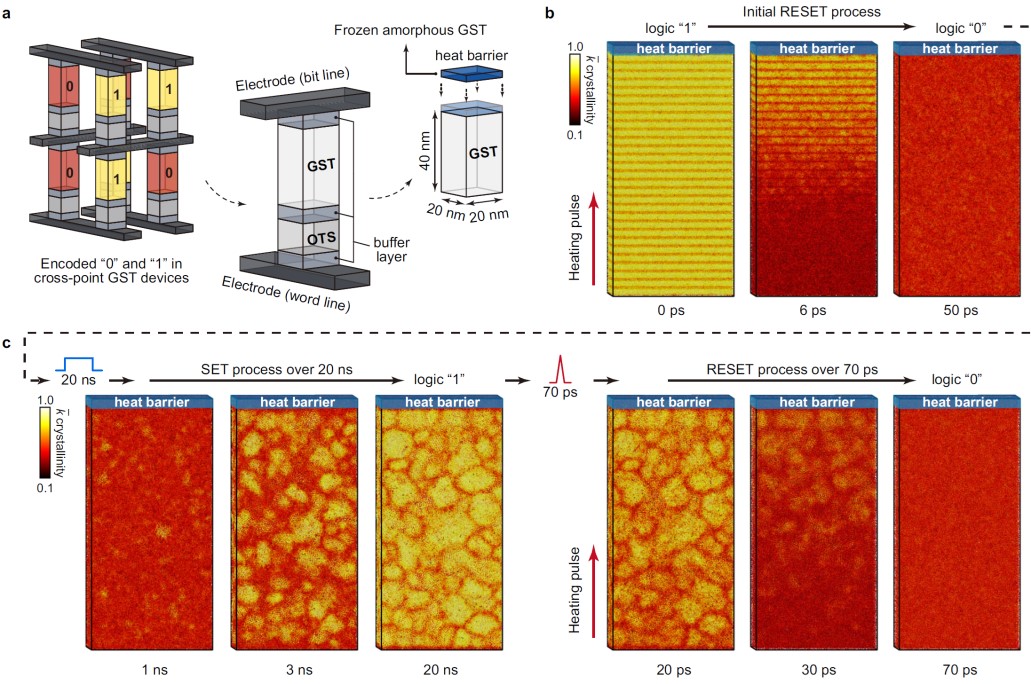A recent study has marked a significant breakthrough in atomic-scale simulations of phase-change memory (PCM) devices, providing a powerful theoretical tool for the research and design of next-generation memory devices and neuromorphic computing chips. The paper, titled “Full-cycle device-scale simulations of memory materials with a tailored atomic-cluster-expansion potential”, was published in Nature Communications on September 30, 2025 (Nature Communications 2025, 16, 8688).

Commercial PCM technology stores binary data by switching Ge–Sb–Te (GST) alloys between its amorphous state (low conductivity, logical “0”) and crystalline state (high conductivity, logical “1”). The key to advancing PCM technology hinges on optimizing device architecture and geometry. However, simulating programming operations at a realistic scale has been a persistent obstacle. For instance, a single memory cell in Intel’s Optane persistent memory measures 20 nm × 20 nm × 40 nm and contains over 530,000 atoms. This scale is far beyond the capabilities of traditional ab initio molecular dynamics simulations, making it extremely difficult to model a complete read/write cycle, which occurs at nanosecond timescales and involves millions of atoms.

Figure 1. Ultrafast molecular dynamics (MD) simulations enabled by the atomic cluster expansion (ACE) framework.
To overcome this hurdle, researchers from the Center for Alloy Innovation and Design (CAID) at the State Key Laboratory for Mechanical Behavior of Materials, Xi’an Jiaotong University, collaborated with researchers at the University of Oxford. Together, they developed an ultrafast machine-learning potential based on the atomic cluster expansion (ACE) framework. Building upon their previous work using the Gaussian approximation potential (GAP) framework (Nature Electronics 2023, 6, 746–754), the new GST-ACE potential was trained using a domain-specific iterative training process. This new potential provides an enhanced simulation efficiency by over 400 times as compared to the previous GST-GAP model without compromising quantum-mechanical accuracy. The potential enables molecular dynamics simulations of one million atoms on a nanosecond timescale or one billion atoms on a picosecond timescale.
With this new potential, the research team has successfully performed atomic-scale simulations of the full-cycle operations of a PCM device. They not only reproduced the rapid picosecond amorphization process (i.e., the RESET or erasing operation) but also simulated the crystallization process (the SET or writing operation), which involves stochastic nucleation and fast crystal growth over tens of nanoseconds. The simulations covered both the cross-point and mushroom-type devices, and demonstrated the atomic-scale structural evolution of phrase transition processes. This work successfully bridges the long-standing “scale gap” between atomic simulations and real-world devices. It provides an atomic-level understanding of key challenges in PCM, such as structural evolution over multiple read/write cycles, the stochastic nature of crystallization, and the stability of multi-level states in neuromorphic computing.
The first author of the paper is Dr. Yuxing Zhou from the University of Oxford. The corresponding authors are Prof. Wei Zhang from Xi’an Jiaotong University and Prof. Volker L. Deringer from the University of Oxford. Co-authors include Dr. Daniel F. Thomas du Toit and Prof. Stephen R. Elliott. All data from this study have been made open-source.
Paper link: https://www.nature.com/articles/s41467-025-63732-4
Source data: https://zenodo.org/records/14755074

Figure 2. Full-cycle device-scale simulations of Ge–Sb–Te memory materials


